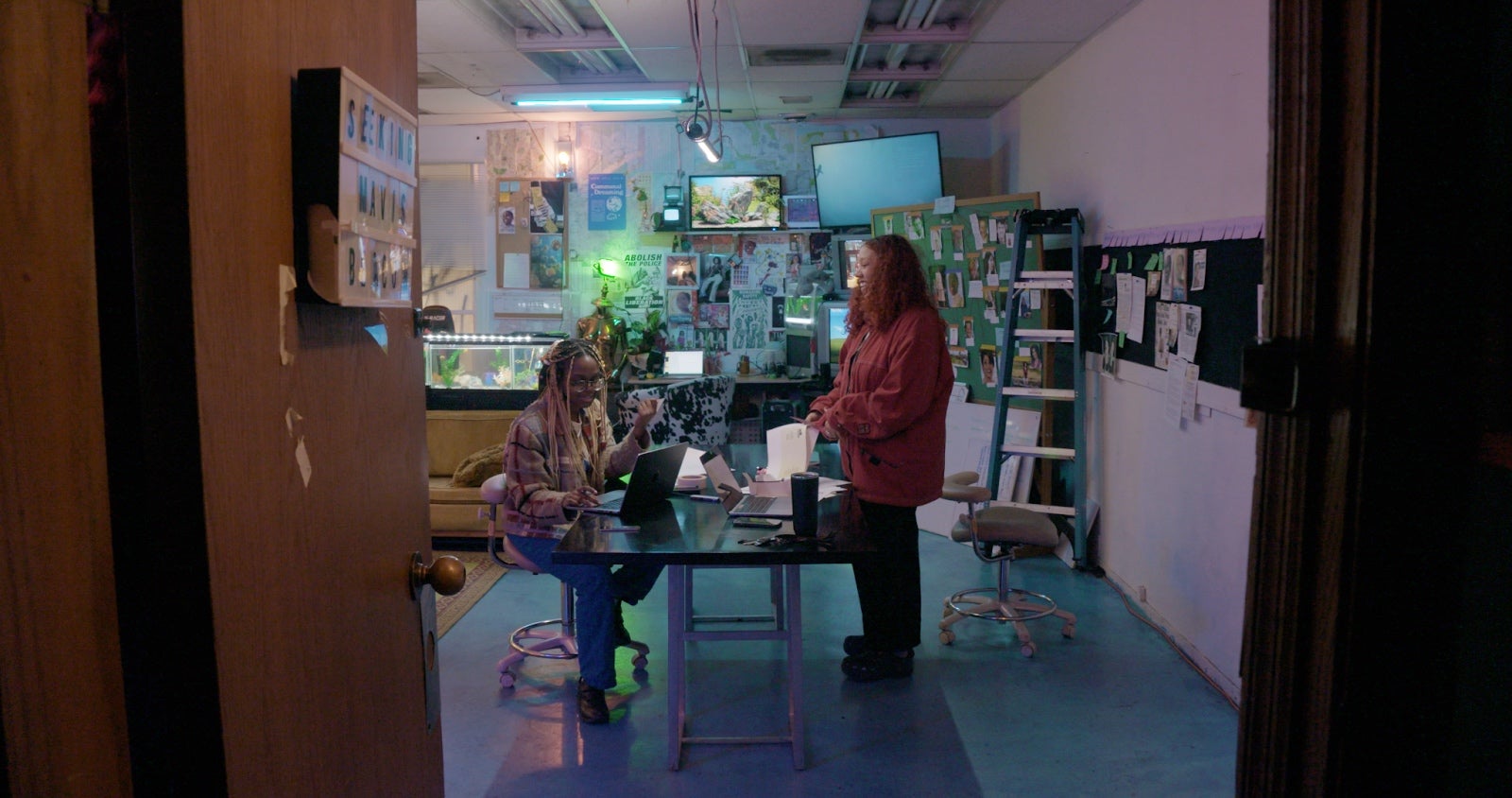Seeking Mavis Beacon raises questions about AI, ethical storytelling, and the importance of informed consent. The film, directed by Jazmine Jones and co-produced by Olivia McKayla Ross, investigates the real Black woman behind the avatar who helped a generation learn to tap QWERTY.
The duo researches the journey of Renée L’Espérance, who was the face of the software Mavis Beacon Teaches Typing. She was paid as a model, but her warmth and beauty helped build a fortune. Her powerful presence caused a massive Mandela event, leading people to believe Mason Beacon was a real person. Jones and Ross are open about their feelings about L’Espérance being all but erased from her cultural contributions.
“I love leaning into the uncomfortable and trying to figure out how to work through that discomfort,” Jones tells ESSENCE. “That’s something that I was trained to do as an undergraduate film student. But I also think that there can often be ethical ramifications to leaning into the discomfort, and sometimes filmmakers sacrifice ethical integrity.”
“It was through collective organizing that I learned all about, heart centered care work,” Jones added. “I’m coming from the school of if you’re a filmmaker, put yourself in the work.”

Jones and McKay interact with the persona of Renée L’Espérance with care in her absence, something Black women do not always receive in a virtual world full of digital Blackface. Ross is comfortable “choosing to kind of abandon the objective voice” other documentarians present as gospel. “I think it’s important to give the audience people to hold accountable because you so rarely kind of get that in media,” she explains. The film asserts that “The truth is actually like fluid as f**k.”
Behind L’Espérance’s beaming face is a trio of tech entrepreneurs. It is unclear if she understood what she was consenting to when she agreed to do a photoshoot for the box cover of a software. Their collaboration made little Black kids excited about the internet. But was it ethical? Was it equitable?
“We can compare to the Aunt Jemimas and the Uncle Bens. We have countless examples of how that has affected Black people,” says Jones. The vagueness echoes the confusion embedded in the contracts for the many apps we can’t function without today. It appears we have a choice, but do we? Did L’Espérance?
“Our consent was manufactured for us,” says Ross.
Obscured details about the creative process impact many kinds of people. Seeking Mavis Beacon identifies intersectionality in the shadows. It examines what’s left out of the story when it is told by the hoodie-wearing tech bro or genteel suit. It doesn’t demonize the men behind the software. It illuminates how holes puncture narratives. L’Espérance wasn’t asked to appear on talk shows or give Ted Talks.
According to Jones, it focuses on “the issues and the erasure that Black women experience,” but “there are also similarities and reverberations to how all women are affected by the glass ceilings of Silicon Valley.”
At one point, a former partner of one of the execs behind the software has an opportunity to correct the story of not only L’Espérance but herself. “Everyone sees the erasure of Renee, but I think very rarely do we get to talk about Sandra Blake’s contributions, and she was not compensated for any of her involvement,” says Jones.

McKay considers the digital landscape the last boundary of capitalistic-inspired colonialism. She told the crowd she intended to help Jones sanitize her digital footprint at a screening hosted by Stop Six Stories.
“This is the last frontier; we ran out of land, we’re running out of resources, at least renewable resources,” Jones tells ESSENCE. “They can’t imprison people fast enough in order to use people’s bodies, and so, they kind of like create these systems, these behavior modification systems so that via social media via other kinds of apps and stuff that we use to kind of hypnotize, you into giving them things that are really valuable for free.”
Jones commented on her complicated connection to the fertile battleground. “I really am really appreciative of the work,” she says. “They were very much architecting this educational software landscape that I grew up on.” As fondly as she looks back on their creations, she wrestles with how they came to be on-screen and off-screen.
“It’s also hard not to look at the employee photos and notice that there’s not a singular Black person in the picture.”
Seeking Mavis Beacon is in select theaters now. See the trailer below.







